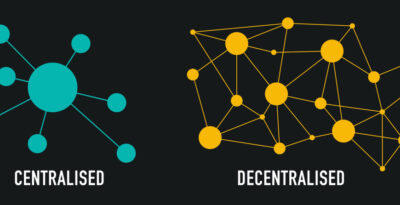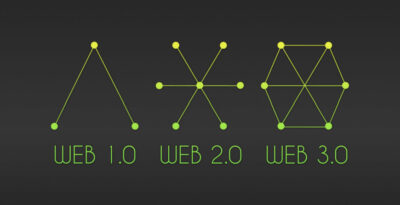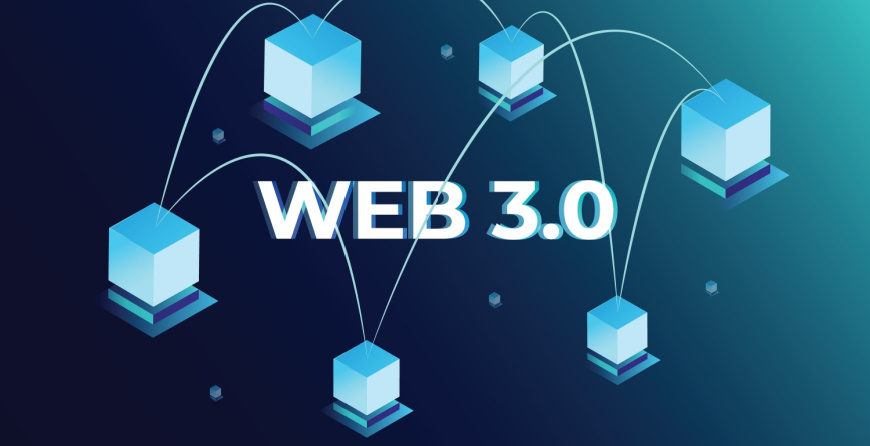Table of Contents
Introduction
If You Have No Clue What Web 3.0 Is, You’re Not Alone. Here’s a Breakdown of the Future of the Internet.
Hype or not, Web3.0 is on the horizon, and it’s critical for entrepreneurs and small business owners to know what to be on the lookout for.
You almost can’t escape the buzz surrounding NFTs, cryptocurrency, and Web 3.0. Some say these technologies will come to revolutionize every aspect of society. Others say this is a pipe dream. As the majority of entrepreneurs are not tech-focused, it may be challenging to get a grasp on Web3 and what the future means for your business, especially when it’s still coming into focus.
If you have no idea what Web 3.0 is or why it’s important, you are not alone. The term was coined by Ethereum’s co-founder, and it is actually quite vague. But, enthusiasts on the subject say Web 3.0 is the future of the internet and there are two main ways to define it.
The Potential Future of Web 3.0
One potential Web3 future is a blockchain-integrated internet. Cryptocurrencies and NFTs will be built into the platforms we use daily.
Now, blockchain is another hot topic that can lead to some question marks for entrepreneurs. To keep it simple, a blockchain is a digital ledger. It arranges information in a publicly visible digital chain of “blocks.” This is famously what cryptocurrency is built on. However, it could potentially be used for a wide variety of applications.
The second potential future of Web3 is a bit more controversial and complex. Enthusiasts say Web3 will lead to a completely decentralized internet owned by users, rather than corporations. Blockchain and its many applications could help deliver such a future. But critics say the same thing has been said about the cryptocurrency itself, and it has so far failed to deliver.
The cryptocurrency was created and branded as a way to give individuals power over their own finances. So far, rather than revolutionizing the world of finance, it has become a high-risk speculative investment class with no consumer protections. Rather than promoting fairness, the world of cryptocurrency and NFTs are plagued with scams and unpredictability.
As a single Bitcoin costs more than most Americans make in a year, there are definitely questions to be asked about who exactly cryptocurrency gives power and financial freedom. But keep in mind that even though we are several years into the crypto terrain, it’s still a relatively young industry, with plenty of room to grow.
What does decentralization mean?
According to some Web3 proponents, the internet is currently owned by a small handful of companies. Think of vast corporations like Meta, Amazon, and Google. They call this “e-feudalism.” Essentially, they claim we are all “digitally toiling” on the virtual properties of Mark Zuckerberg and other tech giants.

Web3 is the fix, they say, returning the power to its users. Here’s a look at how a hypothetical decentralized social platform might look: Rather than undergoing an IPO, the platform would create cryptocurrency tokens, then they would airdrop them to early users. People would be rewarded for going viral or using the platform with tokens, which could potentially also double as governance tokens. Users can use tokens to vote on important platform decisions, from content moderation and other wide-scale policy issues.
Essentially, instead of a company deciding how a platform works and users living with the impact of their decisions, users will collectively make the rules.
Wait, what happened to Web1 and Web2?
To some, it may seem like we went straight from zero to three. Fortunately, Web1 and Web2 are much simpler to understand than Web3. This is partly because Web3 is still largely speculative, while the first two have already come to fruition.
Web1 is the first iteration of the internet when your computer practically yelled at you every time you went online. Think of the slow, static web pages of the 1990s. The internet of the age was mainly used for digitizing and sharing existing media, like books, magazines, and newspapers. By the late ’90s, the blog was born, and for the internet savvy, it was a newfound opportunity to interact with the masses.
Web1 also ran on the open-source protocol. This is one aspect Web3 evangelists want to return to.

The Web2 evolution began in the early 2000s when the internet started to become “read/write” on a wider scale. It had evolved from a place the average user logged on to peruse content to an accessible platform where more users could create, share and store unique information, photos and videos.
Encompassing the rise of sites like Facebook (now Meta) and YouTube, this era eventually gave birth to transformative technology like e-commerce, social media, and the content creator economy.
Web3 advocates essentially want to provide the complexity of Web2 with the community-governed open-source nature of Web1 — via blockchain technology.
Related: Top Companies to Hire Web 3.0 Developers
Controversies surrounding Web 3.0
There are a lot of ideological and practical fights surrounding Web3. Some, like Elon Musk, say it is just a buzzword right now. However, he does not rule out its future.
Critics say that incentivizing users to take digital actions with tokens could create a situation where bad-faith actors seek engagement at any cost. However, the case could be made that even without tokens, many social media users are already doing that. This may just be a side effect of mass internet usage.
Outside of philosophical questions, many have questions surrounding how feasible a decentralized modern internet built on blockchain actually is. Ethereum, on which many potential Web3 projects are based, is incredibly inefficient.
It has a high environmental cost and is expensive to operate at scale. This means that for many smaller businesses, it simply is not feasible to adopt right now.
While many are working to build apps on top of Ethereum to make it work better, some critics question why we are pouring resources and talent into fixing the vast issues of such an inefficient foundation.
Also, a key feature of blockchain is that it stores information publicly, so all users can see it. In some cases, this is a helpful innovation; however, in some applications, allowing all network users to view anyone’s complete transaction history would be a downside — and it could even be dangerous.
Related: See How Leapwork Overcame The Hiring Challenges Using Optymize
What does Web 3.0 mean for your business?
Right now, Web3 is largely hypothetical. This means that no one is exactly wrong or right about it. We don’t know what it will be yet, or if it will be anything at all.
Some say it will create a fair and community-governed digital future. Others, like former Twitter CEO Jack Dorsey, say that it will just lead to an alternate centralized authority.
Some malicious actors are using these futuristic buzzwords to harm people. For example, the British Army’s social accounts were recently hacked to promote scam NFTs. According to an FTC report, Americans have lost more than a billion dollars to crypto scammers this year alone.
It is critical as a business owner that you have a baseline understanding of Web3’s potential, so you can make smart decisions to take advantage of any technological advancements and avoid the pitfalls of being swept up in the hype.
BLOG CREDITS: Entrepreneur





